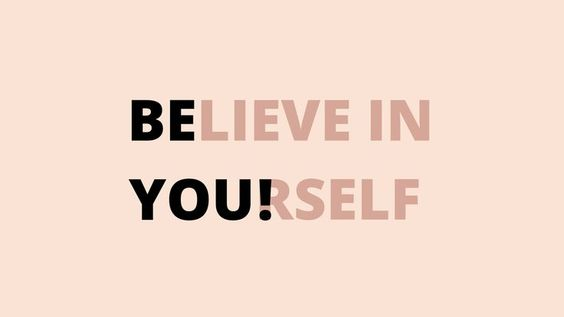Do you ever feel like you’re just going through life without truly knowing yourself or living to your full potential? Does a little voice inside whisper that you were meant for something more if only you could peel away the roles and labels to unveil your unique essence and purpose?
You’re not alone. Self-discovery is a challenge we all face, but it need not be a solo trek into the depths of the psyche. With the right guidance, this profound personal journey has enormous benefits in all parts of your life – personal, professional, intimate, and spiritual. That’s where transformational life coaching comes in. Designed to excavate your inner landscape to unleash your best self, this methodology combines thoughtful inquiry, active listening and disarming questions that chip away at half-truths and limiting beliefs. With laser focus, a life coach aids you in shedding masks, connecting more authentically in relationships, aligning values with actions, and integrating discoveries into daily life with courage.
What is Transformational Life Coaching?
Transformational life coaching is a structured, facilitated methodology for catalyzing profound self-discovery and personal growth. Through the safety of a sacred, judgment-free space, your compassionate coach helps unveil the essence that has always dwelled within. As the mental fog lifts, core truths emerge. Old pain finds healing. Confidence grows. Passions ignite. This powerful inward journey of questioning, releasing, and discovering ultimately unveils your highest potential and purpose so you can boldly step into your best life.
Challenges of Self-Discovery
Attempting to uncover our authentic selves is far from straightforward. We face many obstacles on the journey of self-discovery, including:
Surface-level Understanding of Ourselves:
We often have only a shallow understanding of our behaviours, patterns, fears, desires and beliefs. We get so caught up in day-to-day life that we don’t take the time to deeply reflect. Without plunging beneath the surface, our self-knowledge stays two-dimensional.
Blindspots
We all have blindspots – aspects of ourselves that are difficult to see or acknowledge on our own. Whether it’s an outdated belief, a destructive habit, or parts of our personality, blindspots distort our self-perception and give an incomplete picture.
Confirmation Bias
We gravitate towards information and interpretations that reinforce our existing views of ourselves. This confirmation bias inhibits us from catching areas where our self-narratives might be limited or inaccurate. We seek out validating feedback rather than challenging perspectives.
Reluctance to Be Vulnerable
Engaging in courageous self-inquiry requires sharing parts of yourself that feel frightening, your flaws and tender spots. However, letting down our walls and being vulnerable is instrumental for growth.
Lack of Framework
Introspection without structure or direction can become overwhelming or lead down unhelpful tangents. Self-discovery calls for an exploratory framework to progress through layers of understanding.
Without overcoming these roadblocks, self-insight stays frustratingly out of reach, preventing us from unveiling our full potential.

How Does Life Coaching Help?
A reliable mentor is necessary to navigate the inner maze and arrive at a deeper understanding of ourselves on the path to self-discovery. A life coach gently guides you through the process of questioning deeply held ideas, balancing conflicting inner narratives, and incorporating fresh perspectives into your life. As an impartial sounding board, they expand perspectives—asking thoughtful questions to challenge assumptions or reframe self-limiting stories.
Coaching offers a nonjudgmental space for you to safely air vulnerabilities, take risks, and voice fears without feeling exposed. Rather than providing directives, your coach enables self-directed growth, giving you frameworks, models, and tools so you can keep exploring on your own time. They supply just enough structure – goal setting, self-discovery activities, check-ins – to promote accountability without being overbearing.
Gradually, under the unwavering care of your coach, new vistas of your inner landscape open up. You courageously face the shadows seeking light and address emotional obstacles holding you back from your highest self. Clarity and alignment emerge to guide your journey toward purpose.
How does the Journey of Self-Discovery benefit you?
Actualize Your Full Potential
By diving deep into self-discovery work, you begin dismantling the internal barriers holding you back, enabling you to unlock gifts and talents you never knew you had. As limiting stories and assumptions fall away, space opens up to actualize your full potential.
Live in Alignment
The more you uncover about your authentic self, the more you can dismantle roles, relationships, and environments that dim your essence. You attract people and activities that resonate with your spirit. Every decision aligns with your core values. You live with integrity, fully inhabiting your being.
Uncover Purpose
Self-discovery peels away layers of conditioning to reveal your soul’s deepest longings. What brings you aliveness? What breaks your heart to see in the world? Your sense of purpose hidden within comes into focus, bringing direction to your mission.
Build Self-Awareness
Committing to self-inquiry exponentially builds your self-awareness over time. Not only do you understand personality traits, fears, desires, and shadows – but you also unlock the ability to observe your moment-to-moment internal state. You catch self-sabotaging thoughts instantly while aligning actions with your centre.
By courageously embarking on the self-discovery process with the support of a life coach, you gain the clarity, conviction, and inner resources to actualize your best life.
Conclusion
At Nibana, we have transformed hundreds of individuals through profound journeys of self-insight that utterly transform perspectives, relationships, purpose, and potential. Committing to this powerful work leads to living as your most fulfilled, energized, and authentic self. Why not take the first step in your journey of self-discovery today? Book a session now!





